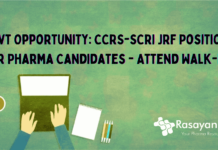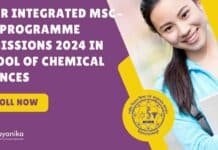Roche, an international pioneer in pharmaceuticals, today announced that the US Food and Drug Administration (FDA) has approved Roche’s tumour-agnostic medicine named Rozlytrek for the treatment of adults with ROS1-positive and metastatic non-small cell lung cancer. The FDA has also granted accelerated approval to Roche’s tumor-agnostic medicine Rozlytrek for the treatment of adult as well as children patients of 12 years of age and older with solid tumors that have a neurotrophic tyrosine receptor kinase i.e, NTRK gene fusion. This gene fusion without a known acquired resistance mutation is metastatic and where surgical resection is likely to result in severe morbidity, and also have progressed following treatment or have no satisfactory alternative therapy.
These FDA approvals are based on results from the study as well as an integrated analysis of the pivotal Phase I STARTRK-1 and Phase I ALKA-372-001 trials, Phase II STARTRK-2, and data from the Phase I/II STARTRK-NG study.
In the integrated analysis of the drug Rozlytrek, the Roche’s first FDA-approved tumour-agnostic medicine was studied in several solid tumor types, including breast, gynecological, neuroendocrine, non-small cell lung, salivary gland, cholangiocarcinoma, colorectal, pancreatic, sarcoma and thyroid cancers.
In ROS1-positive, metastatic non-small cell lung cancer, Rozlytrek drug shrank tumors in about 78% of people with the disease and the duration of response i.e, DoR ranged from about 1.8 to 36.8+ months. Rozlytrek medicine also shrank tumors in more than half of people with NTRK gene fusion-positive, locally advanced or metastatic solid tumors, and objective responses were observed across 10 tumor types i.e, the DoR ranged from 2.8 to 26.0+ months; N=31 out of 54. The Objective responses to Rozlytrek were seen in people with central nervous system (CNS) metastases at baseline.
Sandra Horning, MD, Roche‘s Chief Medical Officer and Head of Global Product Development, said that the Roche’s tumour-agnostic medicine Rozlytrek’s approval for two rare types of cancer is an important advance for patients. This is because by combining a targeted medicine and genomic testing, now we can bring this new and effective treatment option to patients who are waiting. Horning added that Rozlytrek is the first FDA-approved treatment that selectively targets both ROS1 as well as NTRK fusions. Importantly, Rozlytrek has also shown responses in various rare cancer types that have even spread to the brain.
The most common adverse reactions with Rozlytrek drug were fatigue, constipation, swelling (oedema), dizziness, diarrhoea, increased weight, cough, vomiting, fever (pyrexia), joint pain (arthralgia), nausea, nervous system disorders (dysaesthesia),altered sense of taste (dysgeusia), s shortness of breath (dyspnoea), muscle pain (myalgia), cognitive impairment,and vision disorders.
The FDA’s Accelerated Approval Program of the drug allows conditional approval of medicine needed for a serious or life-threatening disease or any such prevailing condition. The FDA’s accelerated approval for this neurotrophic tyrosine receptor kinase gene fusion-positive solid tumors is based on the tumor response rate and durability of response, and continued approval may be contingent upon verification and description of clinical benefit in the confirmatory trials of the drug.
The Biomarker testing for ROS1 in metastatic non-small cell lung cancer and neurotrophic tyrosine receptor kinase gene fusions across all solid tumors is the only way to identify patients who are eligible for treatment with Rozlytrek medicine. Roche is now leveraging its expertise in developing personalized medicines as well as advanced diagnostics, in conjunction with Foundation Medicine, to help to identify patients with ROS1 and NTRK gene fusions. The Foundation Medicine will submit Foundation One CDx to the FDA for its approval as a companion diagnostic for Rozlytrek medicine. This will be an FDA-approved companion diagnostic for Rozlytrek which is not available at this time.
The FDA approval of Roche tumour-agnostic medicine is based on an integrated analysis with the data from that of 51 people with ROS1-positive metastatic non-small cell lung cancer as well as 54 people having locally advanced or metastatic neurotrophic tyrosine receptor kinase gene fusion-positive solid tumors from the Phase II STARTRK-2, Phase I STARTRK-1 and Phase I ALKA-372-001 trials. This FDA approval of the drug is also based on the data from the Phase I/II STARTRK-NG study in diseased children or pediatric patients. The clinical studies enrolled people across 15 countries as well as more than 150 clinical trial sites. Safety of the drug was assessed and analyzed from an integrated analysis of 355 people across these four trials.
The ROS1 is a tyrosine kinase that plays a role in controlling how cells grow and proliferate as well as divide. When a ROS1 gene fusion occurs, cancer cells grow as well as proliferate or divide in an uncontrolled manner. when blocking this abnormal signaling, it can cause tumor cells to shrink or die.
The ROS1 gene fusions account for about 1-2% of non-small-cell lung cancer (NSCLC). Lung cancer is one of the leading cause of cancer-related death across the world. Every year, more than one and a half million people die as a result of Lung cancer disease globally, equating to more than 4,000 deaths every day. Non-small-cell lung cancer ( NSCLC) is one of the most common types of lung cancer and it accounts for about 85% of all lung cancer diagnoses. The ROS1 gene fusion can be found in any patient with non-small-cell lung cancer, but young never-smokers with NSCLC have the highest incidence of ROS1 gene fusions.
Neurotrophic tyrosine receptor kinase gene fusion-positive cancer occurs when the NTRK1/2/3 genes fuse with other genes which result in altered TRK proteins (TRKA/TRKB/TRKC) that can activate signaling pathways involved in the proliferation of certain types of cancer. Neurotrophic tyrosine receptor kinase gene fusions are present in tumors irrespective of the site of origin. These NTRK gene fusions have been identified in a broad range of solid tumor types, including the breast, cholangiocarcinoma, colorectal, gynecological, neuroendocrine, non-small cell lung, salivary gland, pancreatic, sarcoma and thyroid cancers.
Rozlytrek (entrectinib), Roche’s first FDA-approved tumour-agnostic medicine, is an oral medicine for the treatment of adults with ROS1-positive, metastatic non-small cell lung cancer, and also for the treatment of adult and children patients of 12 years of age and older with solid tumours that have a NTRK gene fusion without a known acquired resistance mutation are metastatic or where surgical resection which is likely to result in severe morbidity, as well as have progressed following treatment or have no satisfactory alternative therapy. A selective tyrosine kinase inhibitor is designed to inhibit the kinase activity of the TRK A/B/C and ROS1 proteins. The activating fusions drive proliferation in certain types of cancer. The Rozlytrek drug can block ROS1 and NTRK kinase activity and may result in the death of cancer cells with ROS1 or NTRK gene fusions.
Rozlytrek, Roche’s tumour-agnostic medicine was first approved by Japan’s Ministry of Health, Labour and Welfare (MHLW). This approval was on 18 June for the treatment of adult and pediatric patients with NTRK fusion-positive, advanced recurrent solid tumors. Before this, it was granted Sakigake designation for accelerated review by Japan’s Ministry of Health, Labour and Welfare. It has also been granted Priority Medicines (PRIME) designation by the European Medicines Agency (EMA).
Lung cancer is one of the major areas of focus and investment for Roche, and they are committed to developing new approaches, medicines, as well as some tests that can help people with this deadly cancer disease. Roche has a goal to provide an effective treatment option for every person diagnosed with lung cancer. disease. Roche currently has five approved medicines to treat certain kinds of lung cancer and also more than ten medicines being developed to target the most common genetic drivers of lung cancer as well as to boost the immune system to combat the disease.
Author: Ria Roy













































